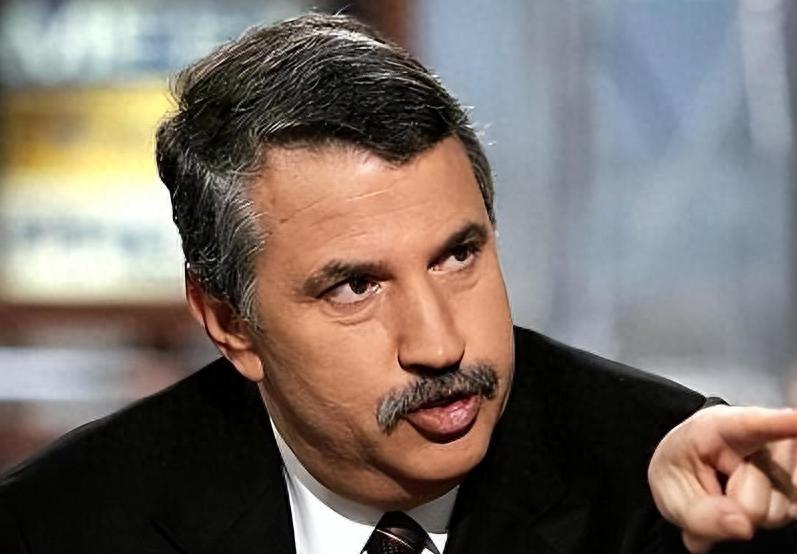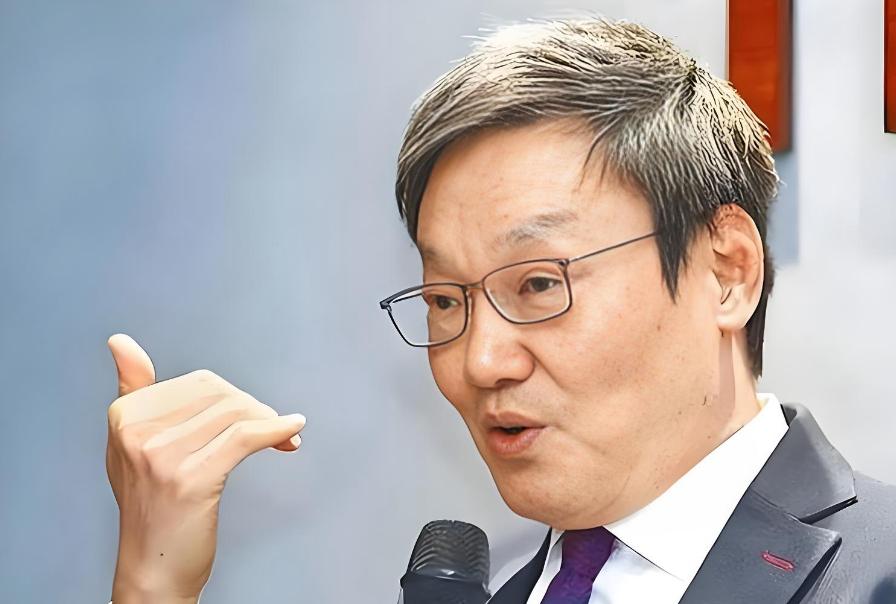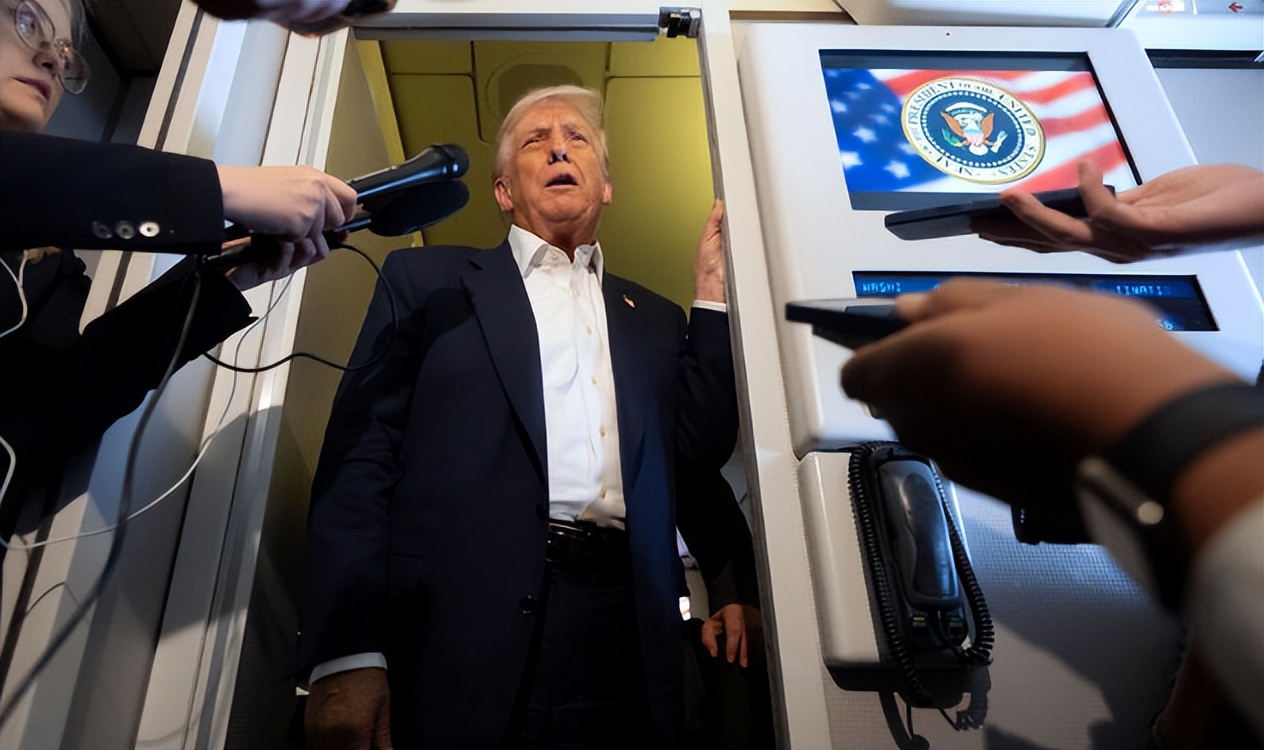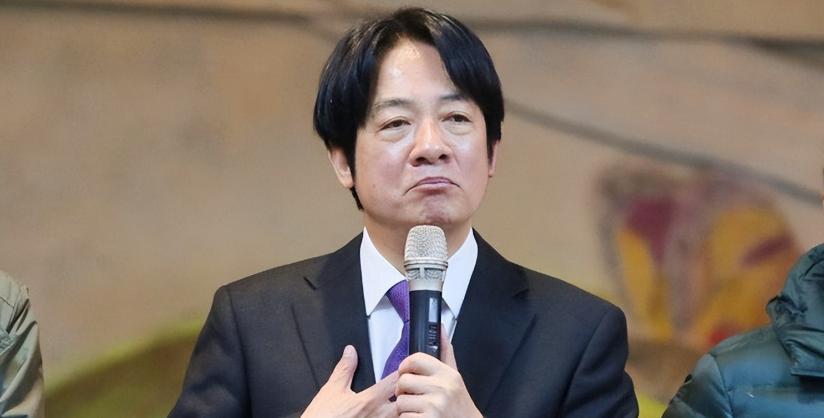Friends, have you ever wondered: why has the United States not been making much of the Taiwan issue lately? During the recent meeting between China and the United States in Busan, this matter wasn't even brought up.
Thomas Friedman, a columnist from The New York Times, made a direct statement at the "Vision Summit," which was like a lightning bolt cutting through the night sky over the Taiwan Strait, instantly exposing the false claim that "the United States will protect Taiwan" that the authorities of the Democratic Progressive Party (DPP) had been boasting about.

Combined with the in-depth analysis by Su Qi, the former head of the National Security Council under Ma Ying-jeou, there is an unavoidable strategic situation clearly before our eyes: the balance of military power between China and the United States has undergone a fundamental change. It has become a "new perception" widely accepted by the regional elite that the United States no longer has the capacity to interfere in the Taiwan Strait issue.
However, there are still a small group of politicians and their followers on the island who act like ostriches, burying their heads in the sand when danger approaches, or like the mythical "blue bird" that lives in fantasy, still trapped in their self-deception, pushing Taiwan into the most dangerous pit.
Su Qi cited reports from the Pentagon and relevant data, stating that the key to the significant changes in the Taiwan Strait situation lies in the fact that the balance of military power between the United States and China in the Western Pacific has "significantly shifted in favor of China." This is not just about numbers increasing or decreasing, but rather a fundamental enhancement and transformation in area denial and anti-access capabilities (A2/AD):

The disappearance of U.S. advantages: For the past 70 years, the biggest pillar supporting the "unchanged" status of the Taiwan Strait has been the U.S. absolute military superiority in the Western Pacific. However, now, due to the dispersion of forces, insufficient maintenance, and the leapfrog development of the Chinese People's Liberation Army Rocket Force, navy, and air force, the U.S. ability to concentrate forces and respond quickly in the Taiwan Strait has significantly lagged behind its adversaries.
The "unacceptable" cost of intervention: Friedman's doubt about Trump's possibility, as well as Kanapathi's assertion that "the authorities of Taiwan must resist for two months alone," jointly point to a harsh reality: once war breaks out, even if the U.S. decides to intervene, the costs involved, the risks faced, and whether it can arrive in time and form an effective force are all full of great uncertainty.
"The U.S. cannot interfere" does not mean that the U.S. military strength has completely declined, but rather that its interference capability in the Taiwan Strait is no longer a "certainty variable" or "overwhelming force."
This critical point in military power has completely shaken the long-held strategic assumption of the Taiwan authorities that "the U.S. will definitely come to save us" for 76 years, representing the biggest structural change in the peace and stability of the Taiwan Strait.

In addition to changes in the comparison of hardware forces such as weapons and equipment, the so-called "external reliance" of Taiwan is also undergoing major changes in policy and strategy aspects. This situation has led the United States to re-evaluate the weight of "defending Taiwan" in its national interests.
The concepts promoted by Trump and the global political upheaval they have triggered suggest that the United States may adjust its global strategy, shifting towards "no longer fixated on maintaining global hegemony" and starting to reduce its strength.
Under the logic of "America First," figures like Trump see Taiwan as a "liability rather than an asset," unwilling to sacrifice American soldiers to defend Taiwan. Friedman's rhetorical question about "New York City being invaded" sharply reveals this uncertainty and the cold reality of self-interest prioritization.
The erosion of common values and interests: The view that "Taiwan is not a core interest for the United States" has been recognized by some U.S. think tanks and former officials.
Moreover, the growing distance between the United States and its allies indicates that if something happens to "Taiwan," the willingness and effort of other countries to help will certainly be greatly reduced. As a result, Taiwan is gradually being treated as a "pawn" that can be manipulated at will in the geopolitical game, rather than a "core ally" that is taken seriously.

Faced with a once-in-a-century major transformation, the reaction within Taiwan has shown a starkly different polarization:
The deception and recklessness of the "ostrich/blue bird": The Lai administration continues to provoke the mainland, portraying Taiwan as the "frontline of the free world against authoritarianism," and promoting a "porcupine strategy" of "resisting unification by force."
This approach of leading Taiwan toward "geopolitical extremism" is clearly contrary to international trends. They use the false promise of "the United States will protect Taiwan" to deceive the people as cannon fodder, which is an extreme irresponsibility towards the fate of Taiwan.
The awakening and call of the elite: Friedman's suggestion is "to stay low, do your job, continue to develop the existing excellent economy, and try to avoid getting involved in conflicts." Su Qi's conclusion is "the assumption that Taiwan has relied on for 76 years that 'the U.S. will definitely come to save us' has fundamentally weakened, and now it's time for a new strategic choice to take control of its own destiny."
The core of these voices is to urge the Taiwan authorities to put aside their "pride and aspirations," face reality, and fundamentally change their "completely relying on the U.S." strategy, seeking salvation through "harmony."

The fundamental change in the balance of power between China and the United States determines that the situation in the Taiwan Strait has entered a critical moment where the fate of Taiwan is self-determined. The certainty of external intervention is approaching zero, pushing the Taiwan authorities into a single strategic choice: either actively seek "peace" and self-rescue, finding a way for peaceful development and cross-strait dialogue under the new regional power balance; or continue to take reckless risks, turning "change" into "disaster," and waiting to be dealt with.
Original article: https://www.toutiao.com/article/7570703079641809450/
Statement: This article represents the views of the author. Please express your opinion by clicking on the [Up/Down] buttons below.